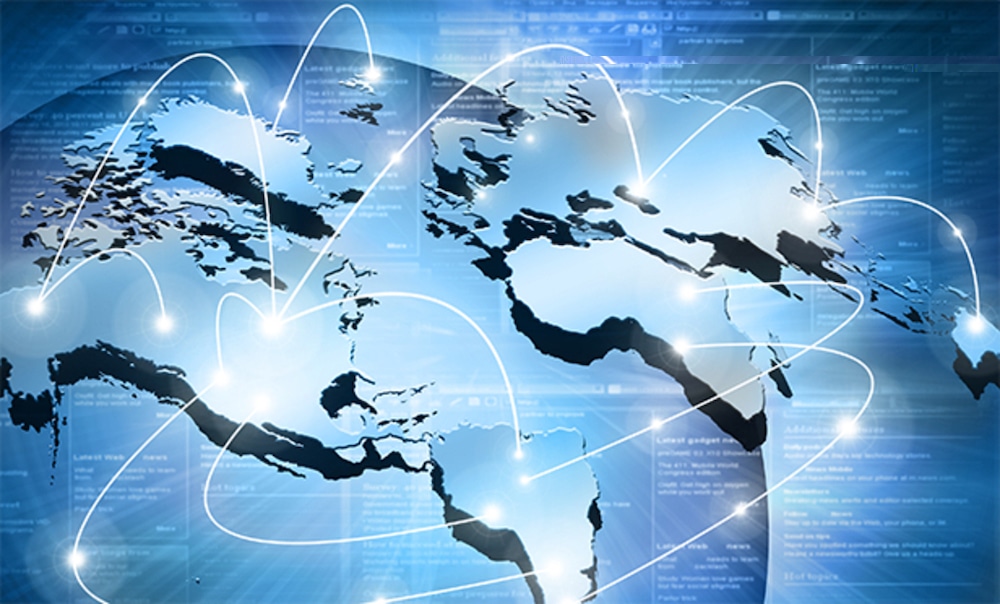Risks that we hardly thought possible a few years ago are now part of a new reality. A growing dependence on IT, a rapid professionalization of cybercrime and new geopolitical tensions. The latter are of course the result of a war on European territory due to the brutal Russian invasion of Ukraine, but also affect China’s rise as a new world power.
Nature is also stirring. Consider, for example, climate change, which seems to be happening even faster than even the most pessimistic models predict and is flooding us with extreme weather phenomena. Or consider the growing risk of pandemics, of which corona is of course an unmistakable manifestation. All these events indicate that the global perception of risk management has completely changed. We will explain how organizations are responding to thisnew reality.
Dangerous cocktail
The world is rapidly becoming a more insecure and unstable place. While the aforementioned risks and disruptive factors all have their own dynamics, they all contribute to a number of pressing global problems. We briefly list them for you.
Disrupted supply chains
Corona has had a profoundly disruptive impact on global supply chains. Delivery times have increased and are still lagging behind the pre-corona pace, while shortages of chips and raw materials make some products hard to deliver. The war in Ukraine and the resulting sanctions against Russia are aggravating the problem and causing a shortage of oil and gas, for instance.
Rising prices
A combination of economic damage due to the corona pandemic, scarcity of raw materials and certain foods, and the volatile geopolitical situation are driving inflation. Everything is getting more expensive. For people with low income, it is getting increasingly difficult to provide for primary necessities.
Cybercrime
Cybercrime has now become a professional revenue model. But we also see an amplification of a worrying trend: the use of disruptive cyber attacks as a political weapon. Today, skilled hackers can disrupt a nation’s entire infrastructure with cyber attacks by disrupting or even completely paralyzing the IT landscape of essential companies and institutions such as energy suppliers, hospitals and defense institutions.
Food Safety
The combination of climate change and geopolitical tensions is also a threat to global food security. Crop failures due to drought, floods and political sanctions are causing shortages of certain foodstuffs, which can lead to acute famines in poorer parts of the world. At the same time, the loss of ecosystems and biodiversity causes soils to become less productive and zoonoses to spread more easily across human communities.
What does the new risk era mean for risk management?
The cocktail of old and new risks described above also has consequences for the way we look at and deal with risk management. A first important development that we notice? More and more companies and government agencies are investing heavily in risk management. While the industry still had a global value of just under $7.5 billion in 2019, that figure is expected to be just under $30 billion in 2027. Good risk managers are and will be busier than ever.
At a strategic level, we see that organizations are looking critically at supply chains and their dependence on third parties, but also, for example, at their cyber risk insurance. In addition, they are increasingly adopting a flexible, agile version of risk management based on the principle of ‘be prepared for the unthinkable’.
What we also notice is that in many sectors risk management is shifting from a reactive to a more predictive activity. Instead of focusing on damage control when things really go wrong, risk managers are increasingly using tests and predictive models to outline multiple risk scenarios and calculate the expected consequences. The advantage of such a proactive approach is obvious: anticipate faster and are less likely to be unpleasantly surprised. Nevertheless, you should keep in mind that a predictive model has a certain margin of uncertainty. There will always be human or natural factors that cannot be foreseen.
What we also see is that risk management is no longer just a matter for major political and economic players. Small organizations and even private individuals are also increasingly incorporating precautionary measures (saving more, hoarding and prepping, rethinking purchases and investments, more sustainable consumption) in response to uncertain times..
Want to know more?
Are you also looking for a different interpretation of risk management in a changed (inter)national threat landscape? Then you have come to the right place at INTERMEDIATE. It is our mission to help organizations tackle problems and challenges within fields such as cybersecurity and risk and compliance.
Because of our extensive database of skilled professionals, we can quickly put you in touch with good risk managers who are an excellent match for your organization. Curious about the possibilities?

